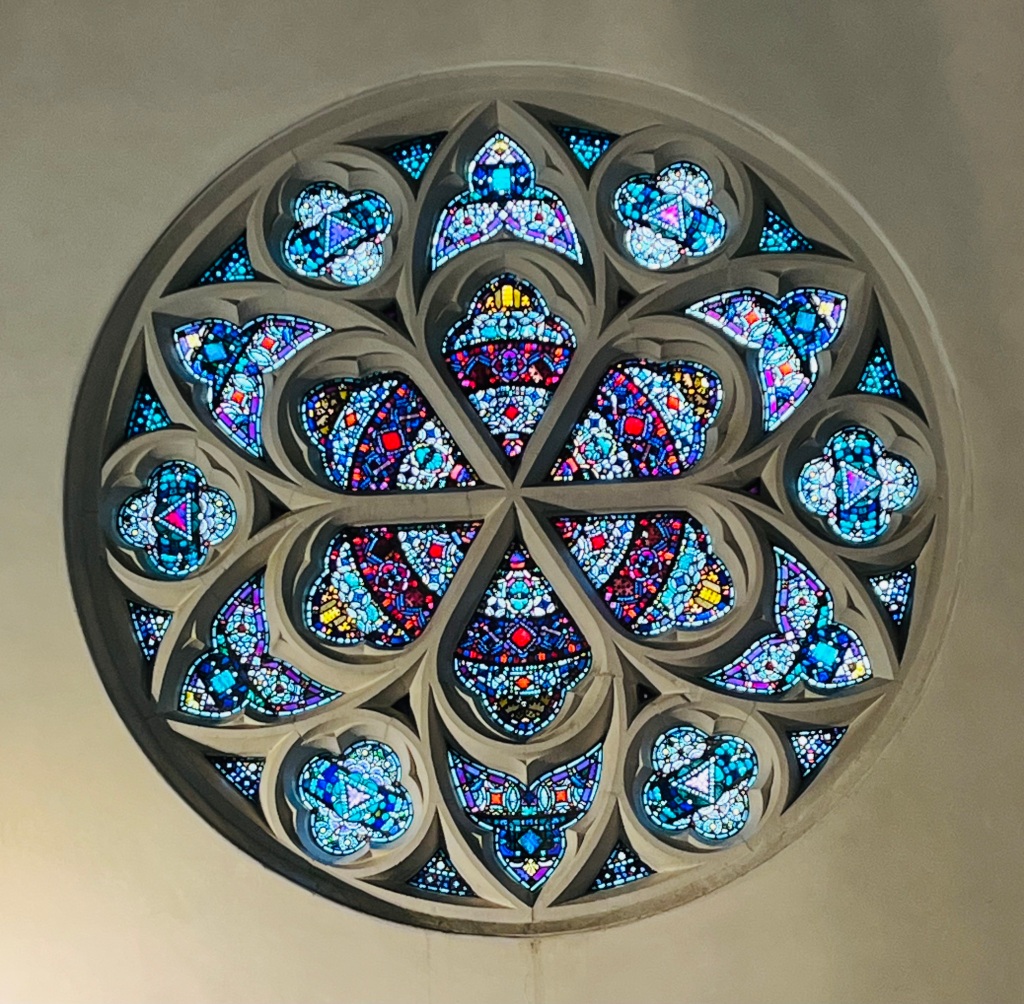More about our recent adventure in the Republic of Ireland and Northern Ireland:

My beloved preaching group is called Roundtable and we’ve been a thing for almost 25 years. We used to write papers and share sermons which was a rich and treasured tradition. But we stopped this practice a few years ago for several reasons.
- We were really tired and wanted to stop forcing ourselves to take on an additional academic responsibility to prepare for – as we prepared to be out of town for study leave which is already a lot.
- We found that “sermon preparation” includes conversations about novels, speakers, and fertile conversations and – after decades of getting together – we already had plenty of traditional exegetical resources and other people’s sermons illustrations.
For this trip, we read Say Nothing: A True Story of Murder and Memory in Northern Ireland by Patrick Radden Keefe. And I’m re-reading it now that I’ve walked in the Bogside in Derry and sat in one of the holiest places in Belfast – Padriac O’Tuoma’s flat.
In the Republican and the UK parts of Ireland, we talked with both Catholics and Protestants whose relationships are now far better than during “The Troubles.” But there are still tender memories of bitter hate. More than one person mentioned “never knowing a Catholic” until adulthood or “not playing Protestant games” as children. (Note: Catholic school children still play Gaelic football and hurling while Protestant schoolchildren play rugby and cricket.) One of our tour guides lost his own teenage brother in Bloody Sunday.
Keefe writes in Say Nothing about the British officers’ general dehumanization of the Irish Catholics in Belfast:
“These people are savages”
. . . which is the time tested way of othering our neighbors whether we are talking about Hutus and Tutsis, Bosniaks, Serbs, and Croats, Native Americans and colonists, slaveholders and enslaved, or Republicans and Democrats. “Savages” are also known as “vermin” or “deplorables.”
This is a friendly reminder that Jesus calls all those people – and us – siblings. Children of God. Beloved.
Here we are remembering those who have given their lives in defense of our country this weekend and I love Memorial Day for this reason. Stories of inexplicable heroism and courage cannot be denied and we owe our lives to many of those who died in national service. I am no pacifist which is embarrassing to write since I call myself a follower of Jesus – who was indeed a pacifist. I would be lying if I didn’t confess that if you hurt one of my kids – or one of your kids, or one of God’s most vulnerable kids – I will cut you.
Calling each other savages or vermin or deplorables is certainly the opposite of holy. And yet Jesus called the Pharisees a “brood of vipers.”
But then he died for them, so there’s that.
I suppose we can also call people who get on our last nerve, people who are horrible, people who are – yes, I’ll say it – evil various “othering names.” But then Jesus says we must ask God to have mercy on them and on us and – for the love of God – we are not supposed to kill them, except in self-defense.
I will thank God forever for people like my clergy group who help me grapple with what God is calling us to preach and teach and do and be in these days. What I know for sure is that we are called to love our enemies and there are tremendous risks when we do that. Read Say Nothing if you need examples.
Image of one of the stained glass windows at The Duncairn Center in Belfast, home of the 174 Trust, dedicated to peacemaking and the arts since 1983.


Such a good book! The PPC book club read it a couple of years ago and had some interesting discussion.
LikeLike